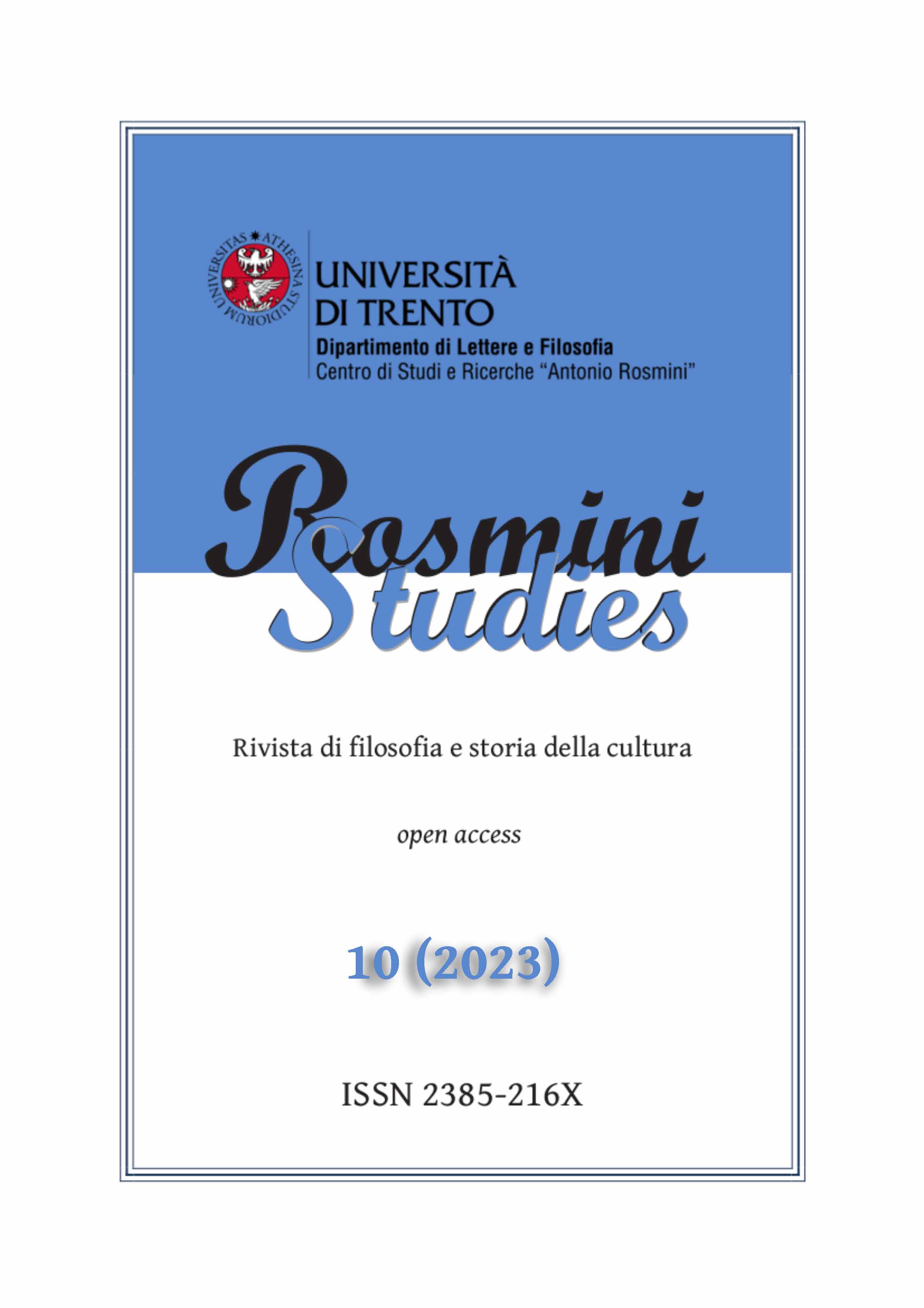Fra immanenza e trascendenza: una contraddizione?
Il rapporto pensiero-realtà nella metafisica di F. H. Bradley
DOI:
https://doi.org/10.15168/2385-216X/2533Parole chiave:
Pensiero, Realtà, Contraddizione, Immanenza, Trascendenza, Relazione, Metafisica, EpistemologiaAbstract
In Appearance and Reality (1893), F. H. Bradley held that reality is both immanent to thought (as a known object) and transcendent to it (as non-relational in structure). This cohabitation of intellectualism and anti-intellectualism in his metaphysics was relevantly attacked by J. Dewey (1907) as being self-contradictory. The goal of my essay is to defend Bradley against this charge by elucidating the structure of the thought-reality relationship and the proper status of contradiction.
##submission.downloads##
Pubblicato
Fascicolo
Sezione
Licenza
Copyright (c) 2023 Rosmini Studies

Questo lavoro è fornito con la licenza Creative Commons Attribuzione - Non commerciale - Non opere derivate 4.0 Internazionale.



